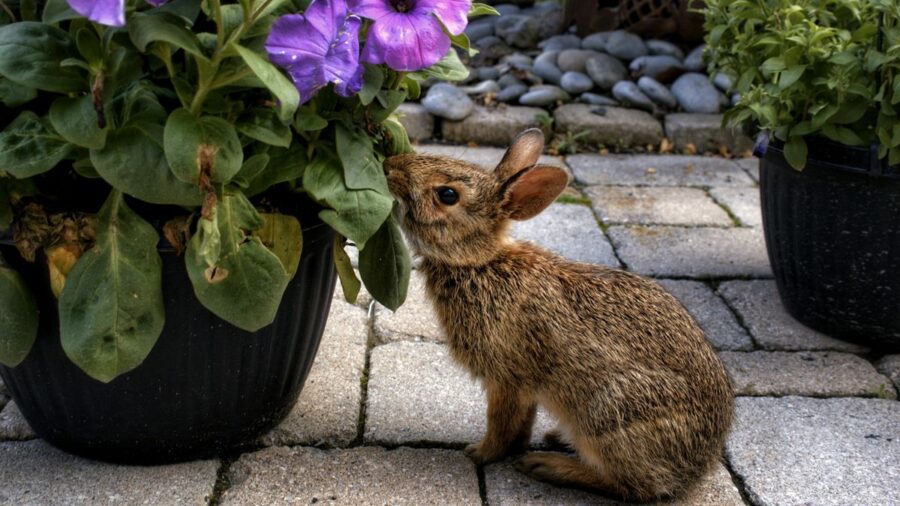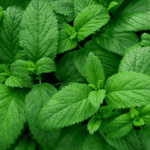
Rabbits are adorable and friendly pets that make great companions for both adults and children. As a rabbit owner, it’s crucial to ensure your pet gets a balanced diet that provides all the necessary nutrients for their well-being. However, not all plants and herbs are safe for rabbits to consume. One plant that often comes to mind is lavender.

Lavender is a beautiful, fragrant plant commonly used for its therapeutic and culinary properties. But, can rabbits eat lavender? In this article, we’ll explore the benefits and risks of feeding lavender to rabbits, and whether it’s a safe option for their diet.
Yes, rabbits can eat lavender, but only in moderation. Lavender is non toxic to rabbits, and in fact, it has several health benefits. However, as with any new food, it’s important to introduce it slowly and in small quantities to avoid digestive upset.
Lavender is low in calories, Yet, 100g of fresh lavender only contains 0 calories. It is a rich source of fiber, offering around 3.8 grams per 100 grams. It also provides minor levels of vitamins and minerals, such as vitamin A, calcium, and iron.
As stated by researchers, lavender can be the factor of relaxing agent for your rabbits as they help them to calm down, unwind and chill out. Lavenders can fix fungal infections, and gastrointestinal, respiration, cardiovascular, stress, and anxiety issues.
Offering fresh lavender that can support the overall health of your mature bunny is a good option. Lavender is only harmful to rabbits when it is eaten in excess.
Overfeeding lavender to your bunny can cause health issues like sickness, stomach infections, and digestive problems, so you should always avoid overfeeding them lavenders.
You should extremely inspect lavender well, remove all types of slugs, dirty dust, and bugs from it and then have to offer it to your pet rabbit.
Unless you pick it from your own pesticides-like your own plants garden, wash lavender well with cool water and remove all remaining pesticides.
Over-ripened lavender means a yellowed, wilted, flop, and bad-to-eat lavender. Avoid feeding ripened lavenders to your pet bunnies.
Rabbits can eat small amounts of lavender as a treat, but it should not make up a significant part of their diet. It’s recommended to only offer a small sprig of lavender once or twice a week. Too much lavender can cause digestive problems for rabbits, so it’s important to monitor their intake and offer a varied diet that includes hay, fresh vegetables, and a small amount of fruit as treats.
To make sure your bunnies are healthy, you need to give them the right kind of food in the right amounts. This means making sure they eat only the nutrients they need and not too much of anything else. So it’s important to be careful about what you feed them and how much you give them.
- 80% Hay (Unlimited)
- 10% Vegetables
- 5% Healthy Treats
- 5% Healthy Pellets
Rabbits require unlimited hay because of their stomachs and digestive system as they have to absorb a high-fiber diet for their healthy life. Hay gives them High fiber, keeps bunnies sensitive, and protects them from bacteria.
Therefore, you should add vegetables of about 5% to 10% to your rabbit diet. You can give about 2 or 3 sprigs on any specified day and offer dried lavender to your bunny. I share about 2-3 tablespoons with my 14-pound rabbit, which is the best practice.
The best thing is that you should feed your rabbits fresh pellets but only about 5% of your rabbit’s daily diet. They are balanced with nutrients that your bunny needs in a specific amount.
Offering healthy treats like apples (without seeds), bananas, grapes, blackberries, carrot tops, dandelions, blueberries, and many more can help your rabbits to break down ingested fur. Remember you should only feed these treats, about only 5%.
It would help if you had must know, as the owner of your pet rabbit, that lavender is grown up for the production of its essential oil, and this oil has several uses. It is also used in some medicines for human health. Overall these benefits this oil has, so what about the bunny?
In short, Yes, lavender oil is safe for rabbits. When it comes to how much of this oil is safe for bunnies? You can give this oil to your bunny in very tiny doses with many dilutions. This oil is also safe for you as it provides vital health and many other advantages.
If you decide to feed lavender to your rabbit, it’s important to do so in moderation. Here are some tips for feeding lavender to your rabbit:
- First, choose fresh and fully green lavender and avoid harmful or insect-eaten grass.
- Check your chosen herb well and remove all insects and slugs from it.
- Now wash this lavender well with clean water, removing specks of dust and bacteria that can cause health issues to your bunny as sickness and digestive problems.
- Place some of the herbs into a clean bowl.
- Place the bowl where your rabbit stays or lives.
- Now, allow your rabbit to eat healthy grass.
Be sure to remove the bowl and any other excess later in the day. You can also give this herb in with unlimited hay that is good for your rabbit. If you follow these methods correctly, they will help you feed lavender to bunnies.
FAQs
You may already know that lavender comes with flowers, leaves, and stems. It is not a big issue for your bunny to have lavender flowers, leaves, and stems. Your mature rabbit can easily enjoy these things.
Lavenders have a rich and robust scent. Therefore, rabbits don’t like the smell of lavender because they irritate by this powerful smell, which can cause headache, eye, nose, and throat irritation, and maybe your bunny will feel discomfort. At the same time, humans enjoy detecting the smell of lavender.
French lavender is one of the most popular herbs, also known as Lavandula dentata. This shrub has a rich, aromatic, lavender-rosemary scent. Therefore, you can’t feed French lavender to your rabbit. It harms your bunny’s health if they take this herb.
English lavender, also known as true lavender or Lavandula angustifolia, is a type of lavender that is highly aromatic and has sweet-smelling flowers. While this herb is generally safe for rabbits to consume in small amounts, feeding them large quantities of it can lead to serious health problems such as stomach and digestion disorders. It may also negatively affect your rabbit’s heart, therefore, rabbits should not eat English lavender.
Lavender is safe for rabbits to eat in small amounts, but it’s not a food that should be a regular part of their diet. If rabbits eat too much lavender, it can cause problems with their digestion. So, it’s important to give lavender to rabbits only as a treat and in moderation.
As you know, lavender is a herb with a heavy scent, and exposure to these fragrances would affect our rabbit’s health. This is why most wild rabbits avoid eating lavender.
No, we never recommend feeding lavender to your baby bunnies. This can be too harmful to them. Baby bunnies under seven months have yet to have strong stomachs and digestive systems.
Baby bunnies’ gastrointestinal systems can’t handle a solid green herb like lavender, so offering them this herb is the wrong choice.
Remember you must wait, yet your rabbit has a strong stomach and digestive system. In about seven months, your bunny will be able to eat lavender. Even then, you have to give them about 2 or 3 leaves in the beginning.
Lavender can be a safe and beneficial herb for mature bunnies. It has antioxidant and relaxing properties, but it is important to avoid overfeeding and to be aware that not all rabbits may enjoy the taste. Additionally, it should not be given to babies or immature rabbits.
Following these guidelines can help when feeding lavender to bunnies. it’s essential to contact the vet before adding any food to the rabbit’s diet.




